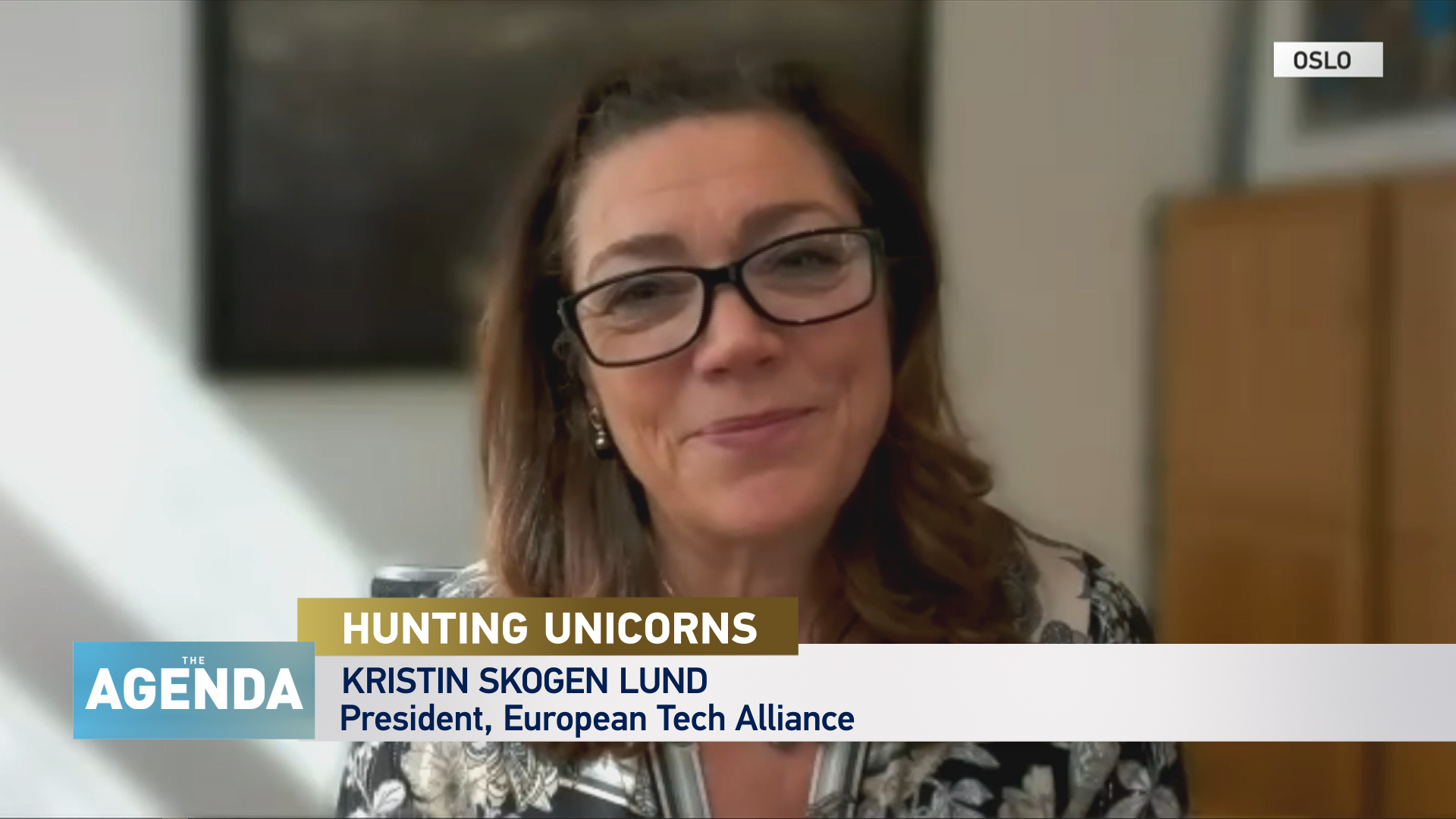09:32

WHAT'S THE ISSUE?
When it comes to tech unicorns, Europe lags rather behind the likes of China, the US and even India in terms of numbers.
But that could all be set to change following the announcement of a new initiative backed by the European Commission to double the number of European unicorns by 2030.
Kristin Skogen Lund, President of the European Tech Alliance joins Stephen to explain just how they might pull that off.

MEET THE EXPERT
In 2021 Kristen Skogen Lund was elected as the first ever woman President of the European Tech Alliance. She is also the CEO of digital brand giant Schibsted.
Formerly she was Director-General of the Confederation of Norwegian Enterprise, EVP at Telenor, CEO of several Schibsted brands, and held positions at the Coca-Cola Company, Unilever and the Norwegian Embassy in Madrid.
Further, Kristin has served as president of the Confederation of Norwegian Enterprise and as a member of the boards of Ericsson and Orkla, among others. She’s also been a member of the Global Commission on the Economy and Climate and the ILO Global Commission on the Future of Work.

WHAT DOES LUND SAY?
Stephen begins by asking Kristin Lund just why Europe is so focused on the hunt for new unicorns: "It is important to grow the European tech sector because, you know, this is the future and we need to have a strong European tech sector both to create economic growth and employment...the creation of unicorns is a sign that you’ve succeeded in creating new and scalable companies."
And just how can the European Tech Alliance help? "What we can do is to make sure that the conditions in Europe are as favorable as they can be for people who have good ideas so they can actually succeed."
Lund says "We need to have predictable and good regulation. I think we all share very much an ambition that tech should be for good. I mean, tech should help solve society's problems and not to strengthen the ones we already have. So I think it's really important that we have good regulation where we have fair competition, where you cannot, for example, do self-preferencing if you already have a dominant position which will hamper new entrants in a market. We also need to have a safe Internet where you have strict rules for what is allowed and what's not allowed and to take down harmful content."
Lund goes on: "Part of our issue has been fragmentation and I think that Europe is becoming better at being less fragmented. We need to create scale in a larger way… there is a rising awareness in Europe that we want to have products and services that are more European-based, so we can actually cater even better to European consumers’ needs. And I think that that's a good driver and motivation both for entrepreneurs and for our authorities and regulatory bodies."




